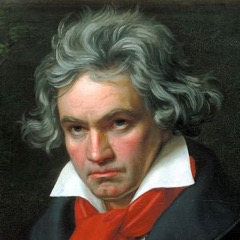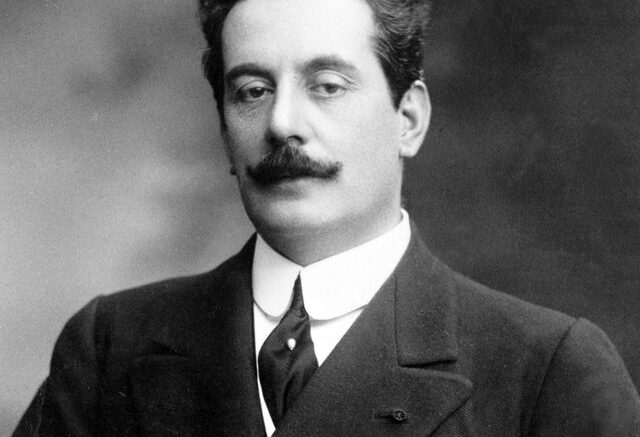Puccini often suffered from depression and never tried to hide it. He said he was born carrying a heavy burden of melancholy. Puccini biographer, Mosco Carner wrote: “Far from considering himself an outstanding artist who enjoyed his world fame and material fortune, Puccini was a self-divided, neurotic personality, fundamentally unhappy, and lonely.” One of his librettists and friends, Giuseppe Adami, who Puccini said knew him better than anyone else wrote: “His natural shyness often isolated him during long periods of contemplative solitude. This free and contemplative life was always necessary to his inspiration. It was discontent with little things, which, to the sensitive temperament of an artist can be a source of more misery than great troubles. As he grew older he saw life rushing on, which his eternally young spirit could not accept.” He was worshipped in Vienna and wrote from Berlin: “They treat me here is if I were the Kaiser or the Crown Prince.” Yet, he preferred to be at his home at Torre del Lago, a tiny village in Tuscany on the banks of Lake Massaciuccoli. “I am longing to creep into my lair again, among my pines.” From Paris, where Puccini was overseeing the rehearsals of La Boheme, he wrote: “I am not very happy here. I should like to be away now for the sake of my work. I cannot work here. I am suffering too much nervous excitement, and don’t have peace of mind, which to me is necessary. An invitation to dinner makes me ill for a week. I wasn’t born for a life of drawing rooms and parties.” And after he became loved and honored in Paris he wrote: “I am sick of Paris! I am panting for the fragrant woods, for the free movement of my belly in wide trousers and no waistcoat; I pant after the wind that blows free and fragrant from the sea. I hate pavements! I hate capitals! I hate columns! I love the beautiful column of the poplar and the fir; I love the blackbird, the blackcap, the woodpecker! I hate the steamer, the top-hat, and the dress coat! I love the green expanse of cool shelter in forests old or young.”
There were months and years of attempts at finding stories to create operas about, which frequently resulted in nothing. His misery increased as time passed while he composed nothing. There were projects which sprang up, matured, and were suddenly destroyed. “If I touch the piano my hands get covered with dust. Music? Useless, if I have no libretto. I want a libretto which can move the world!” Once a story was chosen, he became fanatically concerned with the words, and made life difficult for his librettists. Before he could set words to music, it was essential that the words would fire his spirit as if they were his own creation.
Puccini was very close to his mother. He was 26 when she died. 6 years later his younger brother Michele died from yellow fever. After the death of his mother Puccini began an affair with Elvira Manfredi. She was married with a daughter, but because she had fallen in love with Puccini, she abandoned her husband and had a son with Puccini. She was given a very hard time by the residents of Torre del Lago, the little village where she lived with Puccini. They knew her as an adulteress, who they believed had the evil eye and who had laid a curse on them. Eventually they married, but it was a marriage filled with difficulty. Elvira was intensely jealous and suspicious of Puccini, who was not faithful to her. She regularly opened his mail, went through his pockets, and convinced her self that Puccini was cheating on her even when he wasn’t! After Puccini was seriously injured in a car crash, he spent months at home recuperating and he and Elvira hired a 15-year-old young woman to help with the household chores. She remained employed by them for six years. Elvira was absolutely convinced that the young woman and Puccini were having an affair and spread this rumor throughout the village incessantly. Eventually the girl moved back in with her parents but Puccini’s wife continued spreading this lie until the girl could no longer leave her home. Eventually the pressure became intolerable and she committed suicide. An autopsy then revealed that she had been a virgin. Puccini was so enraged with his wife that he left her for several years.
When the popularity of his operas made him a wealthy man he spent freely: 6 homes, 14 cars, and 5 motor boats including an expensive yacht. Puccini was self-centered, and his principal interests outside his music appear to have been sex, fast cars, and the shooting of birds.
Puccini liked to cook. He sent a letter to Ricordi that included his recipe for beans which he was sending as a gift to the publisher. “I am sending you a small quantity of beans and two boxes of grapes. These beans are very special ones and must be cooked in this way: Put them on the fire in cold water, which should be a moderate amount—neither too much nor too little. Boil for two hours on a slow fire and when they are cooked there should be no more than three or four spoonfuls of liquid. Ergo, be careful of the quantity of water. When you put them on to cook add four or five leaves of sage, two or three heads of garlic, salt and pepper, and when the beans are half cooked, add a little oil to boil with them.”
Adami wrote: “Terrifying doubts would plunge him into desolate periods of inertia. It was distrust of his own work which returned continually to torment him.” And in writing about his last opera, Turandot, “I have finished the orchestration. The result is beautiful. Or is it possible that I am mistaken in thinking so?” Adami continues: “These doubts sometimes assumed agonizing proportions, when he thought that he had not given enough, had not given everything. ‘I am going to sleep so as not to torture myself with thinking. I am sad and find no consolation. Here there is sunshine and fresh greenery, but in my heart blackness. I am a poor, unhappy man, discouraged, old, abject, nothing! I live in torment. If the fever abates it ends by disappearing altogether. And without fever there is no creation. For emotional art is a kind of malady, an abnormal mental state, accompanied by over-excitation of every fiber and every adam of one’s being. I live in torment because I do not feel the throbbing life that is essential to the creation of a theatrical work which is to endure and hold.’” His letters are filled with this endless searching and craving, this continual fight against the dull and the lifeless.
A poem he wrote about 18 months before his death states. ‘I have no friends. I feel alone. Even music makes me sad. When death comes to find me I shall be happy to rest. Oh how hard my life is, though to many I seem happy, but my successes? They pass, and leave so little. They are ephemeral things. Life runs on toward the abyss. He who lives and is young finds the world enjoyable but who is aware of all this? Youth passes so quickly, and the eye contemplates eternity. I am truly stranded. I cannot get clear. Work! Work! There is no better medicine than work for making one’s existence less miserable’ Carter wrote: “He was by nature shy and almost timid, hypersensitive, and highly vulnerable.” He wrote of Puccini’s “unpredictable and constantly changing moods, his sudden enthusiasm for a subject one day and its complete rejection the next. In his own words, he had more heart than intellect. Carner also wrote of Puccini’s “strange conviction that there was no one in the whole world who really loved him. This was, in fact, a projection of what Puccini felt about the world: it was he was never capable of loving.”
A life-long smoker, Puccini had diabetes, and how ironic it is that the man who composed some eternally gorgeous melodies developed cancer of the esophagus. Before he could complete his final opera, Turandot, he died in 1924 in Brussels, soon after a surgery to plant radiation needles in his throat. He was only 65.
After he finished composing the death scene at the end of the opera, Puccini wept uncontrollably. He said: “It was as though I had seen my own child die.”

